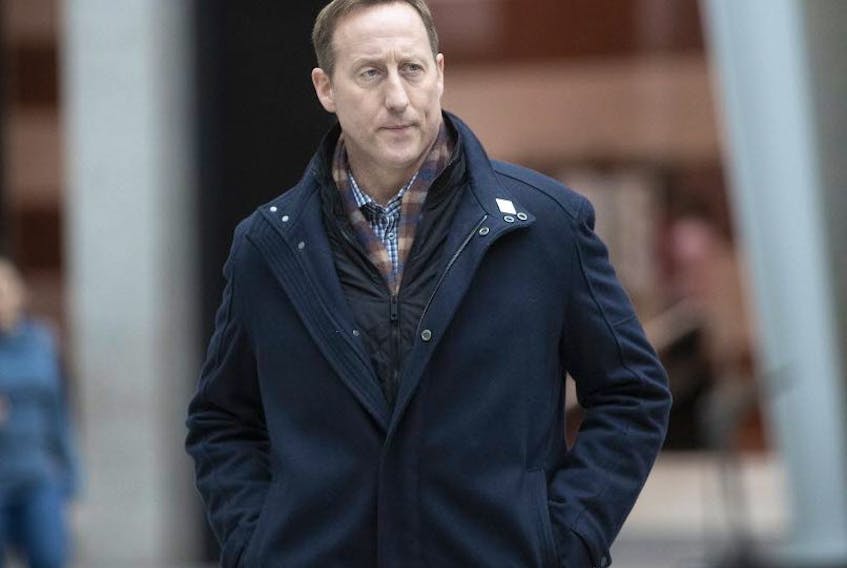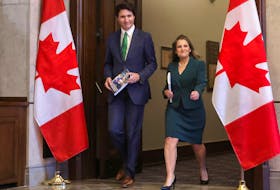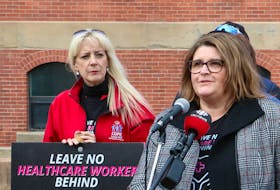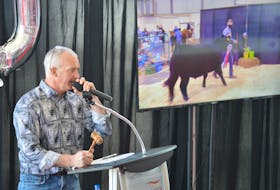Politically, these are strange times.
The World Economic Forum held annually at Davos, Switzerland, was attended by some 2,000 people this year, including 119 billionaires and 53 heads of state.
Greta Thunberg, the 17-year-old Swedish climate-change activist, was among the speakers at the two-day event, as was Donald Trump, the leader of the world’s richest economy.
It is quite remarkable that the organizers of the exclusive Davos forum would allow a teenager to lecture the world’s economic and political elite. Politics isn’t what it used to be.
Except in Canada. Here, the Conservatives are once again changing their leader. Conservatives are a rough crowd.
In the last 50 years only Robert Stanfield, in the 1970s, remained as leader after losing an election. Nobody gets a second chance to develop their leadership skills.
There were 14 candidates vying for the leadership in the 2017 Conservative convention. This year, more people are running away from the race, than joining. This week, three people, all potential contenders, all took a pass.
On Tuesday, the former Liberal premier of Quebec, Jean Charest, who had been a Progressive Conservative cabinet minister in Brian Mulroney’s government, decided not to return to federal politics.
Mr. Charest did say he was concerned about the state of the country right now.
“I am deeply concerned that the people of Canada are politically divided and that this has already become an obstacle to our economic growth.”
But, “the leadership contest rules set by the CPC do not (favour) external candidates,” he said.
Candidates need to get endorsed by 3,000 Conservatives across the country. And, they have to have 1,000 of those signatures by April 27. They also have to put up $300,000 before the convention on June 27.
But the big blow for the Tories came on Wednesday.
When Andrew Scheer resigned, Alberta’s Rona Ambrose was considered the clear front-runner but after weeks and weeks of consideration and consultation, she decided that she, like Mr. Charest, didn’t want to return to federal politics.
“Right now I’m focused on making a difference through the private sector,” she said.
It was a big disappointment. But when they woke up on Thursday, Conservatives consoled themselves, saying “not to worry, we still have lots of good candidates.”
From Nova Scotia, or maybe Ontario, there’s Peter MacKay. Also from Ontario there’s Durham MP, Erin O’Toole who came third in the 2017 convention. And there’s Pierre Poilievre, the MP from Ottawa…no, no, wait…late Thursday afternoon, Mr. Poilievre also pulled the plug.
His withdrawal was a real surprise. He had been campaigning across the country seeking support. On Wednesday it was expected he would announce his candidacy sometime this week.
And then.
“I knew it would be hard on my family life to do this, but, I did not realize how hard.,”
Mr. Poilievre also came to realize that, “my heart is not fully engaged in this leadership race. Without being all in, I cannot be in at all.”
In the list of candidates, Peter MacKay and Erin O’Toole, are the only names most Tories, and possibly a few other Canadians, might recognize. The other candidates; Sarnia MP, Marilyn Gladu, Derek Sloan, the MP for Hastings Lennox in Ontario, and businessmen Rick Peterson and Bobby Singh are virtually unknown.
In addition to worrying about choosing a leader, Conservatives need to be asking themselves why can’t they attract more candidates of substance.
The Conservatives of 2020 are not the Progressive Conservatives of the 1980s. These new Tories need to take a hard look at their policies. They’re too divisive, too partisan, too narrow. But, in the broad sense, they’re not political.
Prussia’s Otto von Bismark said, “politics is the art of the possible.” And, the art of the possible is not about what is right, or best, it’s about what you can actually accomplish.
Political leadership isn’t about imposing your views on the people, it’s about convincing people you can do a better job of running the country.
It shouldn’t be that hard, the competition isn’t that strong.
Alan Holman is a freelance journalist living in Charlottetown. He can be reached at: [email protected].









